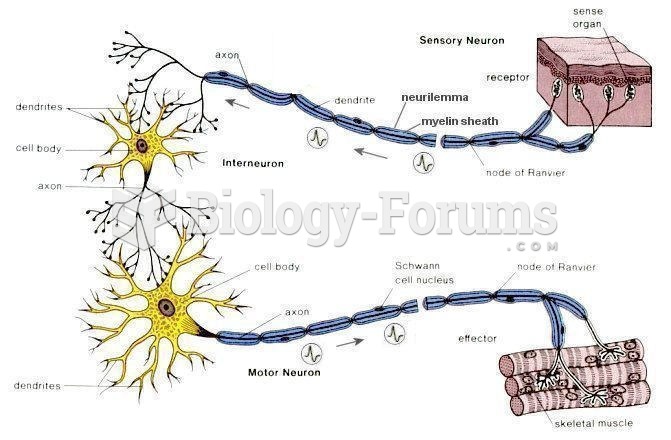This topic contains a solution. Click here to go to the answer
|
|
|
Did you know?
Alcohol acts as a diuretic. Eight ounces of water is needed to metabolize just 1 ounce of alcohol.
Did you know?
Eating food that has been cooked with poppy seeds may cause you to fail a drug screening test, because the seeds contain enough opiate alkaloids to register as a positive.
Did you know?
The average office desk has 400 times more bacteria on it than a toilet.
Did you know?
Allergies play a major part in the health of children. The most prevalent childhood allergies are milk, egg, soy, wheat, peanuts, tree nuts, and seafood.
Did you know?
Acetaminophen (Tylenol) in overdose can seriously damage the liver. It should never be taken by people who use alcohol heavily; it can result in severe liver damage and even a condition requiring a liver transplant.
 A whale off Australia on the spring migration, feeding on krill by turning on its side and propellin
A whale off Australia on the spring migration, feeding on krill by turning on its side and propellin
 (a) The connection required to test a Halleffect sensor. (b) A typical waveform from a Hall-effect ...
(a) The connection required to test a Halleffect sensor. (b) A typical waveform from a Hall-effect ...




